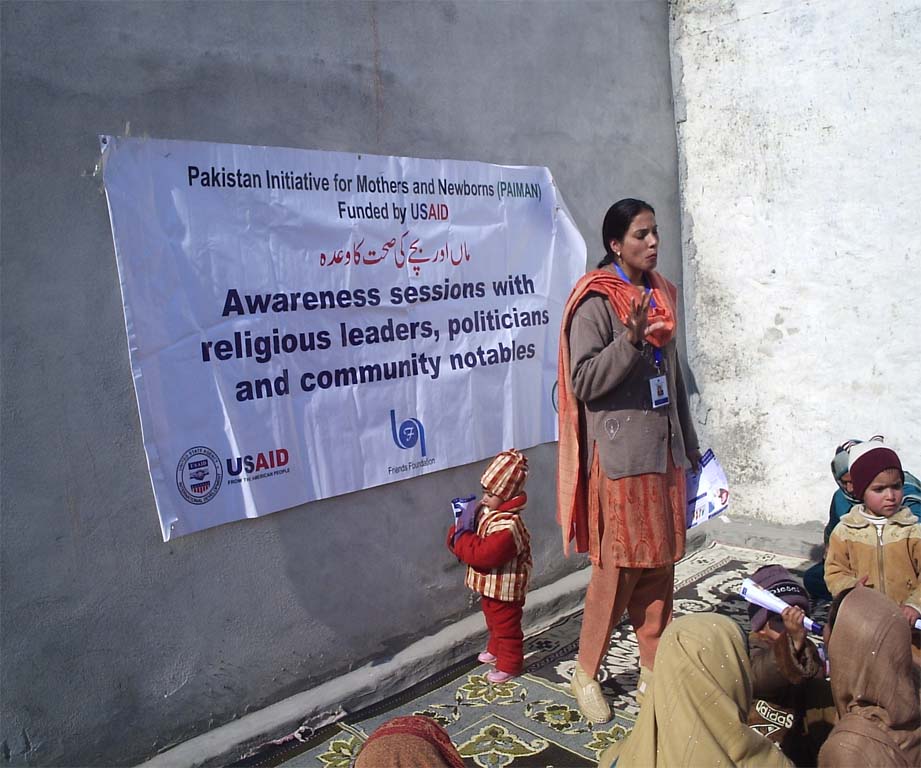In the MDG area of promoting gender equality and empowering women (MDG 3), Pakistan has achieved one of the highest ratios of women parliamentarians in the South Asia Region. The proportion of women in the national parliament (National Assembly and Senate) stands at 22.2%. It can also be noted that on three out of the four indicators related to MDG 3 in Pakistan, progress is lagging. These three indicators include the Gender Parity Index (GPI) for youth literacy, secondary and primary education. Violence against women, though hard to quantify, is a global problem that knows no geopolitical borders. It is prevalent in different types and shapes in different coun¬tries. In Pakistan, low right literacy leads to gender discrimination. At family level the pro-male child prejudices and its over-pampering promotes deep-rooted male superiority mindset that lead to hijacking the female rights. The situation results in marginalizing women needs and access to services. The local Mullah over projects the male roles and advocates further cementing of these attitudes.
The female child suffers rights ignorance and lacks skill and space to demand the same. With an environment of right suffocation around and indoctrinating instructions to sacrifice and surrender her rights, she slides into a narrow space in the family decision-making leaving no choice than to end in silence and accept the violence as a fate accompli.
The insensitive community shy’s away on the domestic violence and is unsupportive to the victim. The civil society organizations commonly suffer capacity gaps and lack skills to work together. The result is ineffective NGOs, unaware media and legal community. The district governance and police suffer gap on the new enactment on women rights and, lack skills to translate the VAW related policy decision into action at the planning and implementation end. The police generally comprise men that consider VAW either as a family matter or treats it as ordinary crime. The project aims to fill the capacity gaps of community, civil society and police for supporting VAW victims and facilitating the women to exercise their rights without fear and fright.
The services are either unavailable or beyond the capacity of the VAW victim. The situation presents an environment with poor accountability nets that offer escape windows to the violence perpetrators. The result is the perpetuation of hostility and, continued violence against the women.
In Pakistan, with its estimated incidence exceeding 80%, the VAW is the most widely tolerated violation of human right. Pakistan is a signatory to all the international moots. Post ratification of treaties, such as, the CEDAW and agreement on the MDGs goals, many legal structures and corresponding laws, in Pakistan, have witnessed changes favoring gender equity, and end gender based discrimination and VAW, yet, the attitudes and practices of most office bearers and opinion leaders, continue to suffer the implementation gap. Besides, the gender obsessed religious leader promotes gender discrimination and cements the male domination attitudes and practices. The community is illiterate on women rights and unsupportive to the VAW victims. The media fails to capture the violence incidence while the legal support for the victims is missing.
As a result: A large segment of women fail to claim their right to be protected and enforce prosecution of perpe¬tra¬tors.
The lack of aggressive role of civil society and the women’s movement to significantly change perceptions, patterns and behaviors allow widespread of VAW.
Unequal power relations persist and are reproduced at different levels and by social institutions such as the family, communities, schools, media and normative institutions.
Power relations operate through norms and structures that are both personal and systemic, and both formal and informal. Working towards (gen¬der) justice – and therefore towards eradicating VAW - requires promoting and achieving positive change at all these levels.
Historically civil society’s outreach capacity is based on traditional, rather labor-intensive and costly, social mobilization and outreach methods.
The VAW as a wide spread and most commonly tolerated form of human rights violation and is deeply embedded in socio-cultural traditions. The continued silence of women, local traditions, customary law and prevailing beliefs and attitudes are used to institutionalize the legitimacy of gender-based violence.
The low social and economic status of women and their significant contribution to the household and village economies in most areas of Pakistan are well known facts though not as well documented. Field visits by FF team have shown that the oft-cited constraints on women's involvement in the development process can be overcome. There has been significant progress in terms of changes in the attitudes of men to gender segregation, as is evident from the growing demand for education for girls. Education can and will make a big difference in the lives of women as well as in their relationships with men as equal partners.
The FF is cognizant of the fact that, the awareness raising, lobby and advocacy without community level edutainment and mobilization, has limited effect on impacting the deep- rooted issues such as VAW. Also that, touching on these sub¬jects in edutainment formats, makes them more acceptable to speak about and realizing the objectives of promoting gender equity and, as such, made part of the project design











